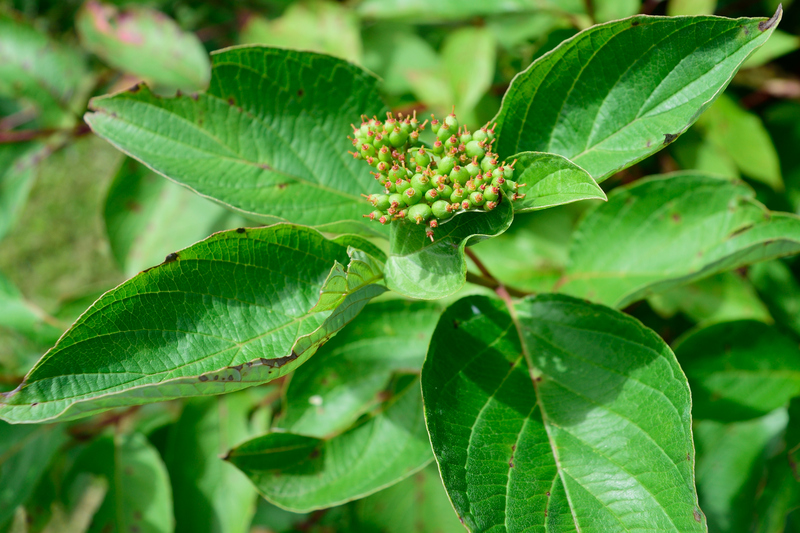9 Structured Gardening Tips to Pave the Path for Beginners
Posted on 18/06/2025
9 Structured Gardening Tips to Pave the Path for Beginners
Gardening is a profoundly rewarding journey that brings you closer to nature, enhances your environment, and even improves your overall well-being. Whether you've just picked up your first trowel or are searching for expert-organized gardening steps, understanding foundational garden tips is crucial. In this comprehensive guide, we'll unveil 9 structured gardening tips for beginners--each one paving the way to flourishing plants and a thriving green space.
Why Structured Gardening is Essential for Beginners
For those starting out, gardening can initially seem overwhelming. The multitude of plant varieties, soil types, and care regimens can muddle your enthusiasm. That's why a structured approach to gardening is essential. By following a clear, proven path, you can avoid the common pitfalls and cultivate confidence--from seedling to harvest!

1. Start with a Clear Plan
The foundation of every successful garden is thoughtful planning. Before digging in, take the time to organize your ideas and vision.
- Identify Your Goals: Do you want a vegetable garden, a flower patch, or a medley of both? Understanding your gardening aspirations will narrow down your efforts.
- Assess Your Space: Evaluate available sunlight, soil quality, and space size. This will ensure you match suitable plants to your location.
- Draw a Garden Layout: Sketch a simple design, considering plant heights, spacing, and companion planting principles.
A written plan acts as a visual reference, making the beginning of your gardening journey much more organized and manageable.
Bonus Tip:
*Don't be afraid to start small! A few well-planned beds can be far more rewarding than an overloaded, chaotic garden.*
2. Get to Know Your Soil
Understanding your garden's soil type is essential for optimal plant health. Good gardening always begins with the ground beneath your feet.
- Test Your Soil: Use a simple soil test kit to check pH levels and nutrient content. This reveals if your soil is sandy, clayey, loamy, or a blend.
- Amend as Needed: Enrich poor soils with compost, manure, or other organic matter to boost fertility and improve structure.
- Mulch Wisely: Mulching conserves moisture, moderates temperature, and suppresses weeds.
*By tailoring your gardening practices to your soil's needs, you'll foster a strong environment for your plants to thrive.*
3. Choose Beginner-Friendly Plants
Selecting the right plants is a crucial gardening tip for novices. Opt for varieties that are hardy, require less maintenance, and flourish in your specific climate.
- Vegetables: Lettuce, radishes, green beans, and tomatoes are excellent starting points.
- Herbs: Basil, mint, parsley, and chives are easy to grow and rewarding for everyday cooking.
- Flowers: Marigolds, zinnias, and sunflowers offer vibrant color and low-stress care.
_Research your local USDA Hardiness Zone or consult with a neighborhood nursery for localized advice._
4. Master Watering Techniques
Effective watering is at the heart of every vibrant garden. Both underwatering and overwatering can harm your plants, making it critical to establish the right routine.
- Water Deeply, Not Frequently: Deep, occasional watering encourages deep root growth, improving drought resistance.
- Early is Best: Water in the morning to minimize evaporation and prevent diseases.
- Avoid Wet Foliage: Try not to wet plant leaves--a wet canopy can lead to fungal issues.
*Observing your garden's moisture needs helps you adapt as weather, plant variety, and growth stage change.*
5. Prioritize Proper Spacing
Giving your plants the space they need is often overlooked by beginners but is a structured gardening tip that pays dividends.
- Follow Seed Packet Directions: Most seeds and seedlings come with spacing instructions--stick to them to ensure air flow and access to nutrients.
- Avoid Overcrowding: Packed beds lead to competition for light, water, and nutrients, increasing the risk of disease.
- Stagger Heights: Place taller plants where they won't shade out shorter ones.
_Careful plant placement enables every seedling to reach its fullest potential!_
6. Keep Up with Weeding and Mulching
Weeds are a persistent challenge for gardeners at all skill levels. These interlopers compete for vital resources and can harbor pests or diseases.
- Regularly Pull Weeds: Make weeding a routine part of your schedule, especially after rain when roots are loose.
- Apply Mulch: A 2-3 inch layer of organic mulch suppresses weeds, retains moisture, and improves soil over time.
- Edge Your Beds: Place barriers along garden edges to limit invasive grass or weeds from creeping in.
*Consistent weed control keeps your garden healthier and reduces maintenance headaches.*
7. Learn Basic Pest and Disease Management
One of the most important gardening tips for new gardeners is understanding how to prevent and handle pests and diseases. A vigilant, structured approach beats problems before they escalate.
- Inspect Often: Check plant leaves (top and bottom) regularly for holes, discoloration, or pests.
- Encourage Beneficial Insects: Ladybugs and lacewings are excellent natural pest controllers.
- Avoid Overuse of Chemicals: Resort to organic solutions first; neem oil, insecticidal soap, and manual removal are effective for many issues.
- Practice Crop Rotation: Rotate plant families each season to prevent the buildup of soil-borne diseases.
_Early detection and intervention can save your plants from disaster, ensuring a lush, flourishing garden._
8. Feed Your Plants Properly
Just as we need a balanced diet, so do our gardens. Applying the right fertilizer in the correct quantities prevents deficiencies and supports robust growth.
- Use Organic Amendments: Compost, worm castings, and well-rotted manure enrich soil naturally and sustainably.
- Follow Feeding Schedules: Most plants benefit from monthly applications during their growing season.
- Don't Over-Fertilize: Excess nutrients can burn roots and kill beneficial microorganisms.
*Feeding your plants wisely encourages healthful, productive growth with fewer issues down the line.*

9. Document and Reflect on Your Progress
The best gardeners are always learning. Keeping a simple garden journal, snapping photos at intervals, or tracking plant performance helps you spot patterns and improve year after year.
- Note Planting Dates: Record what you planted and when--it helps in making better decisions in future seasons.
- Log Successes and Failures: Track what's working and what isn't. Celebrate big harvests or beautiful blooms, but don't shy away from noting mistakes.
- Reflect Seasonally: Take time at the end of each growing season to review your journal. Your observations will be invaluable for planning your next garden.
_Understanding your unique microclimate, soil, and plant performance turns beginners into experienced gardeners in no time._
Bonus Structured Gardening Tips for Beginners
- Join a Community: Local garden clubs or online gardening forums offer camaraderie, support, and practical advice.
- Continue Educating Yourself: Read gardening books, watch educational videos, or attend workshops to expand your skillset.
- Don't Be Discouraged by Setbacks: Every gardener faces challenges. The key is to persevere and keep learning!
Conclusion: Your Gardening Journey Begins Now
Building a garden is much more than tending soil and seeds; it's about nurturing growth, patience, and creativity. By following these 9 structured gardening tips for beginners--from planning and soil management to ongoing learning--you'll pave a vibrant path toward gardening success.
*With the right approach, a supportive community, and a willingness to experiment, even the most inexperienced gardeners can achieve lush, productive, and joyful gardens.* The seeds you plant today will yield beauty, nourishment, and delight for years to come.

